This story is published in cooperation with Willamette Week and the Community Doula Alliance.
Amanda Mendoza had only been a doula for a few months when she heard a cry for help.
One of her clients, a first-time mother who’d gone into labor at home, had become scared just as she, her husband and Mendoza were about to leave for a nearby birth center. The client cried out – and Mendoza’s own motherly instincts kicked in.
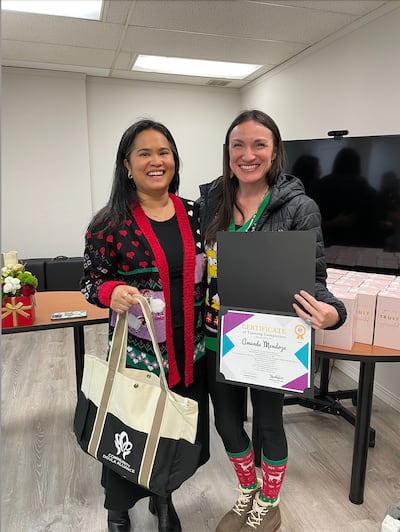 Opens in new window
Opens in new window“Although her husband was in the bathroom with her and I was nervous to intrude...I went to her, held her hand in mine and told her she was safe,” Mendoza said. “She brought my hand to her cheek and closed her eyes, almost melting into my touch. I felt her gratitude so deeply for that moment of reassurance.”
It’s those kinds of experiences, and the connections formed with birthgivers and families, that can be truly rewarding for a doula—a trained birth professional who provides physical and emotional support, advocacy and companionship for expectant and new families. Those experiences are more significant for doulas of color who have been historically underrepresented in the Portland area. That’s where Community Doula Alliance (CDA) comes in.
Since its founding in 2020, CDA has supported more than 500 families in the Portland metro region through its Diverse Doula Program (DDP) and added more than 90 trained doulas to the workforce from their Community Doula Training (CDT). And, it has no plans to stop. The nonprofit will celebrate its five-year anniversary with a celebration gala from 5 to 10 p.m. Saturday, Sept. 13, at NW Events in Hillsboro. All are invited; use the code WW15 at checkout for $15 off.
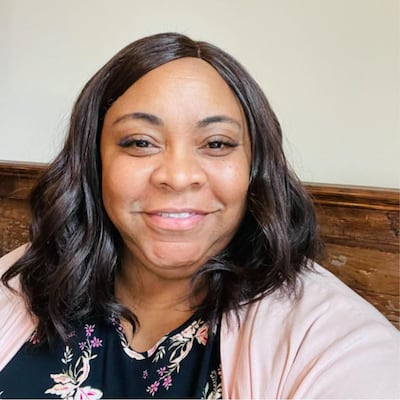 Opens in new window
Opens in new windowFounded in 2020 under the leadership of Kimberly Porter, MSW/CSWA, CDA is a community-based doula organization centered on Black, Indigenous, Latine and other culturally diverse birth workers. Marnellie Bishop joined the organization that October, bringing her expertise in finance, operations, and infrastructure building to help grow the nonprofit’s capacity and impact.
When Mendoza was referred to CDA, she experienced the empowering support from the Diverse Doula Program, and later answered the call to become a doula through their CDT program.
“It really brought home a full-circle experience to be supported by a CDA doula during my birth,” Mendoza said. “Then to be trained as a birth doula with CDA, and then to support a birthing family together.”
Both programs are essential for reaching CDA’s long-term goals of building the doula workforce, expanding training capacity and increasing community connection, effectively positioning CDA as a key champion for the expansion of birth equity.
“A community-based doula agency is vital for our city, particularly due to the historical lack of representation among Black, Brown and Indigenous doulas and birth professionals,” Porter said. “This scarcity has perpetuated inequities faced by these communities, limiting their access to doulas who share their lived experiences and cultural backgrounds. Our agency functions as a Medicaid billing hub to provide access to OHP families and bridge the gap by creating a welcoming and representative space for both families of color and doulas of color.”
Porter’s passion for birthwork began before CDA’s founding. A longtime psychotherapist and maternal and child health advocate of 33 years, Porter started in Portland supervising the culturally-specific maternal-child health home visiting programming for low-income teen moms, specifically African American/African individuals.
The more she worked with these communities, the more Porter understood the unique difficulties they faced in Portland. Porter empowered families to get the best care possible and helped them navigate the medical system for improved care; her lived experience played a crucial role in helping them overcome obstacles.
“This exposure highlighted the critical need to examine how families were being treated within hospital settings and the direct impact on birth outcomes,” said Porter, who then went on to pursue doula training herself. “It was through this combination of experiences that the vision for CDA began to form: a unique model combining the comprehensive support of home visiting care workers with the invaluable advocacy of doula care.
This personal journey and commitment to culturally specific care through Community Doula Training (CDT) and the Diverse Doula Program (DDP) are the driving forces behind CDA’s mission to decolonize birth work and improve maternal and infant health outcomes for families of color in Portland.”
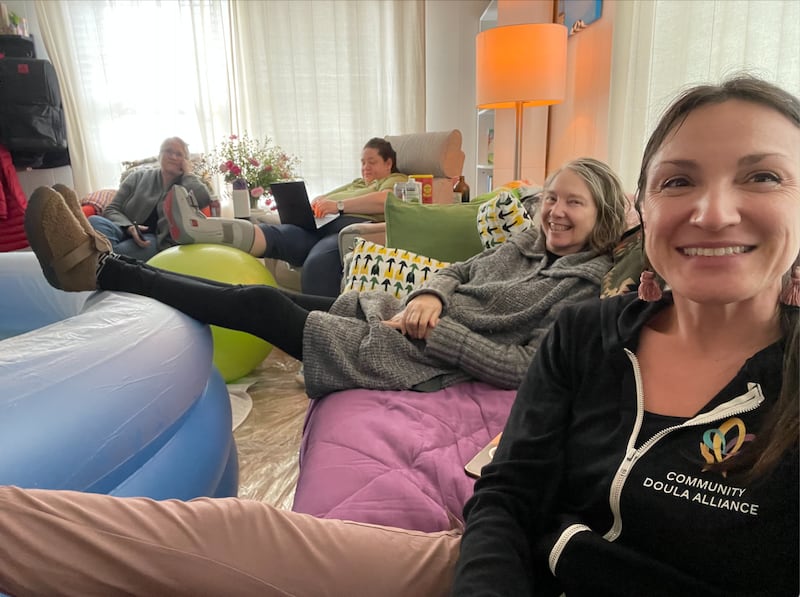 Opens in new window
Opens in new windowThe mission is a critical one, considering the continued racial disparities present in maternal and infant health. For example, according to KFF (formerly the Kaiser Family Foundation), pregnancy-related mortality rates for Black, American Indian and Alaska Native birthgivers are more than three times higher than the rate of their white counterparts. That is why it’s so important for expectant parents to be matched with culturally specific doulas like CDA doulas—an often-overlooked keystone in birthwork (the work of supporting pregnancy and birth).
Research shared by the federal Office of Health Policy has shown that doula support during pregnancy positively impacts multiple maternal and infant health outcomes. One study of low-income women, 41% of whom were Black, found that mothers assisted by doulas were less likely to give birth to a baby with low birthweight and experience birth complications. It’s why a Swahili-speaking family who recently immigrated was matched with a CDA doula who speaks the language and has lived that experience. It’s also why CDA paired a family, who previously gave birth in Mexico with the help of traditional midwives, with a doula who could help them recreate a “back home” birth experience that honored their cultural practices.
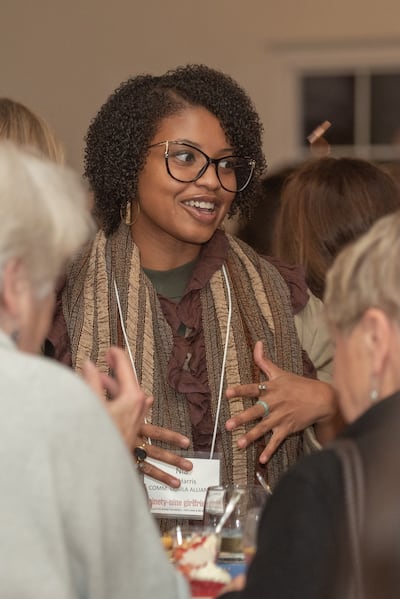 Opens in new window
Opens in new windowNia Harris, who heads up program development and grant funding research for CDA, said CDA plays an important role in making those kinds of improvements in Portland.
“Community-based doula care is a mitigating factor for maternal mortality and many other risks to birthing families, particularly in low-income communities and communities of color,” she said. “For these communities in the Portland metro area, this model of care offers long-term community care as an effective holistic approach.”
Jessica Ramirez is another doula trained by CDA. Ramirez chose the nonprofit for two reasons: because of her amazing doula, Ali Buchanan—a CDA staff member—who helped her during her second pregnancy, and because she witnessed how much pride CDA took in offering doula services and support that is holistic and culturally considerate.
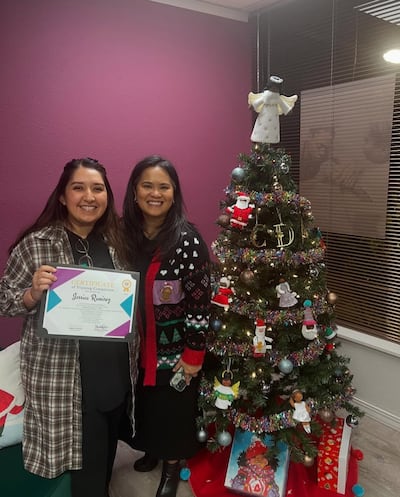 Opens in new window
Opens in new window“Being pregnant, giving birth or even being in a hospital can feel scary, especially for people of color who often face many barriers in the medical systems,” she said. “The role of a doula is to not only help ease feelings of anxiety, but advocate for our clients. I have wanted to be a doula for a long time and I am so happy I finally get to be [one].”
Ramirez also appreciates that CDA continues to support its doulas. Its new membership program, which provides an opportunity for doulas to visit in person and receive support, even includes classes on doula topics that help doulas with their businesses.
“Our mission is to cultivate an exceptional generation of professional doulas, with a specific focus on . . . racially and linguistically diverse individuals,” Porter said. “By doing so, we aim to empower them with sustainable careers while simultaneously improving maternal and infant health outcomes and addressing the evolving needs of birthing and postpartum individuals.”
Get your tickets to CDA’s anniversary gala here, and use the code WW15 at checkout for $15 off; for more information about CDA, visit communitydoulaalliance.com.
